
Virginia Quitclaim Deed Form Process

How Can You Obtain a Virginia Quitclaim Deed Form?
To get a quitclaim deed form in Virginia, you can find a template online or visit local government offices. Look for legal document service providers that offer Virginia-specific quitclaim deed templates. Make sure any form you choose is suitable for filing in Virginia. Online quitclaim deed submission is available and caters to Virginia real estate transactions with user-friendly interfaces.
Where to Find Reliable Sources for Legal Documents
You can find reliable documents for Virginia property transfers through dedicated legal websites and local clerk offices. These sources provide necessary forms for conveyance and other deed tasks. Verifying that these documents comply with Virginia’s legal standards is vital for a valid transfer process.
Online vs. Local Office: Obtaining Forms
When deciding where to file a quitclaim deed in Virginia, compare online resources to visiting a county courthouse or local government office. Accessing Virginia quitclaim deed forms online offers convenience, especially for simple transactions. However, visiting a local office provides direct assistance and ensures all documents needed for filing are verified.
What Are the Steps to Complete a Quitclaim Deed in Virginia?
Completing a quitclaim deed in Virginia entails numerous procedures. Ensure all parties have the correct information, including grantor and grantee details. Follow Virginia’s unique guidelines, which may necessitate additional documentation. Following these instructions may complete the process smoothly and without issues.
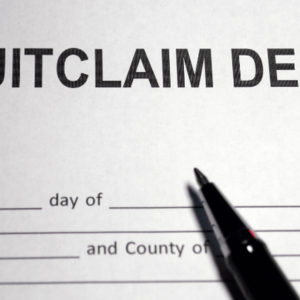
Key Information Required for Completion
To complete a Virginia quitclaim deed, acquire accurate documents for grantor and grantee identities, provide a clear property description, and follow Virginia quitclaim deed rules. Verify this information to confirm the property’s title is transferred correctly and documented.
Signing and Notarization Requirements
A Virginia quitclaim deed requires notarization and witness signatures. All parties must sign the document in front of a notary public. Virginia law establishes particular notarization procedures to validate the conveyance legally. The county recorder will accept the paper only if it is properly notarized.
What Are Common Mistakes to Avoid When Filing?
Common mistakes when filing a quitclaim deed in Virginia include inaccuracies in grantor or grantee details, incomplete documentation, and failure to follow signing protocols. An accurate submission should follow Virginia’s legal checklist to prevent rejection. Proper verification helps minimize errors and delays.
Errors That Can Lead to Rejection
Errors leading to a quitclaim deed’s rejection in Virginia include incorrect legal descriptions, unsigned sections, and missing notary seals. Meeting all legal requirements ensures the document’s acceptance. Thorough document verification before submission can prevent possible delays and rejections.
Tips for Accurate Submission
For accurate filing of a Virginia quitclaim deed, double-check all information, keep organized records, and ensure every section complies with Virginia’s requirements. Seek legal advice if unsure about any part of the process to comply with state laws and avoid issues.
Legal Considerations for Virginia Quitclaim Deeds
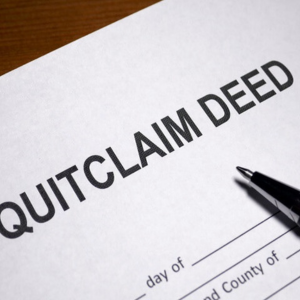
What Legal Terms Should You Know?
Understanding the terms related to quitclaim deeds is important in Virginia real estate. Key terms include:
- Grantor: The person or entity transferring their property interest.
- Grantee: The person receiving this property interest.
- Consideration: The payment made for the property transfer is often minimal in quitclaim deeds.
- Quitclaim Deed: A document transferring the grantor’s interest in a property without any guarantees.
- Warranty Deed: This type of deed assures the property’s title.
- Title Transfer: The official process of moving ownership rights from the grantor to the grantee.
- Virginia Real Estate Law: The rules and statutes that govern property transactions in Virginia.
Knowing these terms helps everyone understand what happens during a quitclaim deed transaction.

How Do State Laws Affect the Quitclaim Process?
Virginia’s state laws play a significant role in quitclaim deeds. Here’s how they impact the process:
- Code of Virginia: This is the main legal source concerning property and title transfers, including quitclaim deeds.
- Virginia State Statutes: These laws outline what’s needed for a quitclaim deed to be valid. For example, deeds must be signed and notarized.
- Legal Requirements Quitclaim Deed Virginia: Specific rules define what makes a deed valid. This includes identifying the grantor and grantee and a detailed property description.
- Virginia Quitclaim Deed Laws: These regulations determine how and where quitclaim deeds must be recorded to change the title.
- Property Rights Virginia dictates what interests a grantor can transfer with a quitclaim deed.
- Virginia Real Estate Regulations: These are the comprehensive rules governing real estate transactions, including those involving quitclaim deeds.
Following these legal guidelines ensures the title transfer through a quitclaim deed in Virginia is smooth and enforceable.
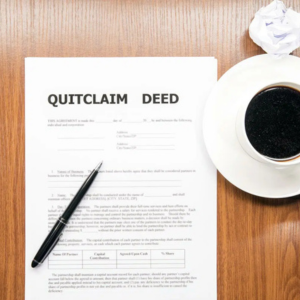
Are There Tax Implications for Using Quitclaim Deeds?
Using a quitclaim deed in Virginia may have tax consequences:
- Tax Implications: Property transfers via a quitclaim deed might lead to tax triggers, depending on the situation.
- Tax Exemptions: Certain conditions might allow for exemptions, lowering tax responsibilities.
- Virginia Quitclaim Deed Tax Liabilities: These can occur if the property is subject to capital gains or unpaid property taxes.
- Potential Tax Liabilities: Transferees should be aware of any outstanding tax duties linked to the property.
- Tax Regulations Virginia: State tax laws may have specific requirements or responsibilities based on the transfer details.
- Quitclaim Deed Virginia Tax Year: The tax year when the deed is executed can impact tax obligations.
- Property Tax Virginia: Ensuring up-to-date property taxes is essential during the quitclaim deed process.
Knowing these tax aspects helps parties manage the financial effects of using a quitclaim deed in Virginia and avoid unexpected liabilities.
Filing Procedures for Virginia Quitclaim Deeds
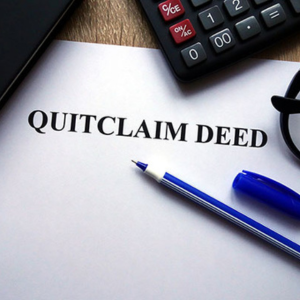
Where Do You File a Quitclaim Deed in Virginia?
In Virginia, you must file a quitclaim deed at the county courthouse where the property is located. Deliver the deed to the correct filing location to become part of the public records. This step ensures the legal transfer of property rights under Virginia law.
What are the Filing Fees and Costs Involved?
Filing a quitclaim deed in Virginia involves a fee that varies by county, usually between $20 and $40. Additional costs may also be, like transfer taxes or other standard fees. Contact your local clerk’s office to find the exact cost of your area’s Virginia quitclaim deed.
How Long Does it Take to Process a Quitclaim Deed?
Recording a quitclaim deed typically takes a few days to several weeks in Virginia. Delays can occur if documentation is incomplete or if the courthouse has a high volume of filings. To speed up the process, ensure all paperwork is complete and accurate before submission.
Situational Factors Affecting Quitclaim Deeds
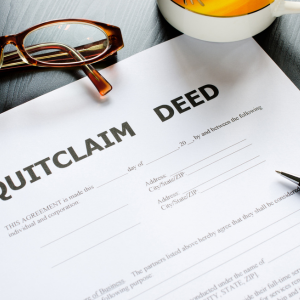
How Does Marital Status Influence Filing?
Marital status is important when filing quitclaim deeds, especially in Virginia. If a husband and wife own a property, it may be regarded as marital property. In community property states, assets acquired during the marriage are often shared equally. This sharing can affect the processing of a quitclaim deed. Virginia recognizes joint tenancy and tenancy by the entirety, which can impact property rights during a transfer. Understanding these aspects is crucial before proceeding with a quitclaim deed.
What Happens When Transferring Property to Family Members?
Using a quitclaim deed to transfer property among family members involves several key points. These transfers often include a grantor and a grantee. In Virginia, the tax implications need careful evaluation. A transfer might be considered a gift deed, resulting in possible gift taxes. Additionally, transferring property within a family can raise inheritance issues, affecting family trusts and legal protections. It’s important to consider the risks involved to ensure compliance with state regulations.
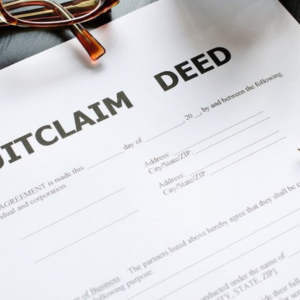
Is There a Difference for Commercial vs. Residential Properties?
There are clear differences between handling commercial and residential properties with quitclaim deeds in Virginia. The state’s property law requires attention to real estate types, as investment properties and zoning regulations differ significantly. Commercial real estate often demands more complex deed execution procedures than residential properties. Real estate investors should familiarize themselves with the requirements for quitclaim deed execution in Virginia to ensure smooth transactions. Knowing these differences is key to successful real estate ventures.
Additional Resources and Support

What Resources Are Available for Assistance?
If you’re handling quitclaim deeds in Virginia, several resources can help. Legal aid services are available to guide you through the property transfer process. Many support services focus specifically on Virginia quitclaim deed procedures, providing trustworthy information and resources. Online, you can find quitclaim deed templates and guides for proper filing. Legal aid organizations may offer property transfer assistance at reduced or no cost for those eligible.
How Can Professionals Assist in the Quitclaim Process?
Hiring professionals can make the quitclaim process much easier. Attorneys and legal experts in Virginia real estate law can provide crucial advice and representation. Professional services help with preparing and filing quitclaim deeds, ensuring legal compliance. Consulting with Virginia real estate legal experts ensures adherence to state-specific rules. Attorneys can review documents to help prevent disputes by ensuring they are accurate and complete.
How to Ensure Your Documentation is Correct?
Getting your quitclaim deed documentation right is key to a successful property transfer. Start by verifying all document details for accuracy. Keep detailed records and store all necessary documents safely. Use a quitclaim deed document checklist to avoid missing any important steps. Maintaining good property transfer records in Virginia is important for legal compliance and future reference. Having precise documentation safeguards your interests and makes transactions smoother.
FAQs:
What is a quit claim deed, and how does it work in Virginia?
A quit claim deed in Virginia is a legal document used to transfer any interest the grantor may have in a property. This type of deed does not guarantee that the title is clear. It is often used between family members or to resolve title issues.
How do I file a quit claim deed form in Virginia?
To file a quit claim deed in Virginia, you must complete the form and have it notarized. Afterward, submit it to the local county courthouse where the property is located, along with the applicable filing fees.
Can I download a quit claim deed form for Virginia online?
You can download Virginia’s quit claim deed form from various legal websites. Before using it, ensure that it complies with Virginia state laws.
Is a quit claim deed valid across states like Virginia and Maryland?
A quit claim deed is valid only within the state where it is executed, such as Virginia or Maryland. Each state has its requirements, so check local laws for validity.
Are there benefits to using a quit claim deed in Virginia for property transfer?
Yes, a quit claim deed can simplify the transfer process and is useful for transferring property among family members or quickly resolving title issues in Virginia.
What are the potential challenges of using a quit claim deed in Virginia?
One challenge with quit claim deeds in Virginia is the lack of a title warranty. The grantor does not guarantee that the property is free of liens or other encumbrances.
Can a company use a quit claim deed to transfer property in Virginia?
Yes, a company can use a quit claim deed to transfer property interests in Virginia. It is important to ensure the deed is properly executed and complies with state laws.
What resources are available if I need help filing a quit claim deed in Virginia?
If you need help filing a quit claim deed in Virginia, consider consulting with a real estate attorney or using an online legal service. Some companies also offer video calls or live chat support.
Key Insights
- Discover how to file a quitclaim deed in Virginia, including the benefits and filing deadlines through Virginia courts.
- Our service provides resources for downloading quitclaim deed forms and offers video call support for personalized assistance in document preparation.
- Learn about legal terms related to quitclaim deeds under Virginia law with insights from our detailed FAQs on their validity period.
- We assist with the quitclaim deed filing service in Virginia, ensuring compliance with state statutes and court requirements.
- Access downloadable guides and books on real estate laws and quitclaim deeds to enhance your understanding.
- Stay updated with the latest news on property laws and regulations in Virginia through our newsletters.
- Use our online platform on PC or mobile, featuring interactive maps to locate relevant Virginia courthouses and coal mining areas.
- Connect via email and live chat for quick resolutions to your questions.
- With our detailed content, you will understand how the quitclaim deed process can impact financial aspects like quid and money management.
- Join our social media community on platforms like Twitter, where users share experiences and tips about using quitclaim deeds in Virginia.
Discover the steps to successfully sell a house in Virginia with this helpful guide. Whether you’re in Fredericksburg, Richmond, Mechanicsville, Chester, Culpeper, or any surrounding area, these tips and insights are designed to apply across the state. We also buy houses, offering a quick and stress-free solution for homeowners looking to sell. If you’re ready to take the next step or need personalized assistance, feel free to Contact Us at (540) 755-4099 or visit our website at Kingfisher House Buyers.


